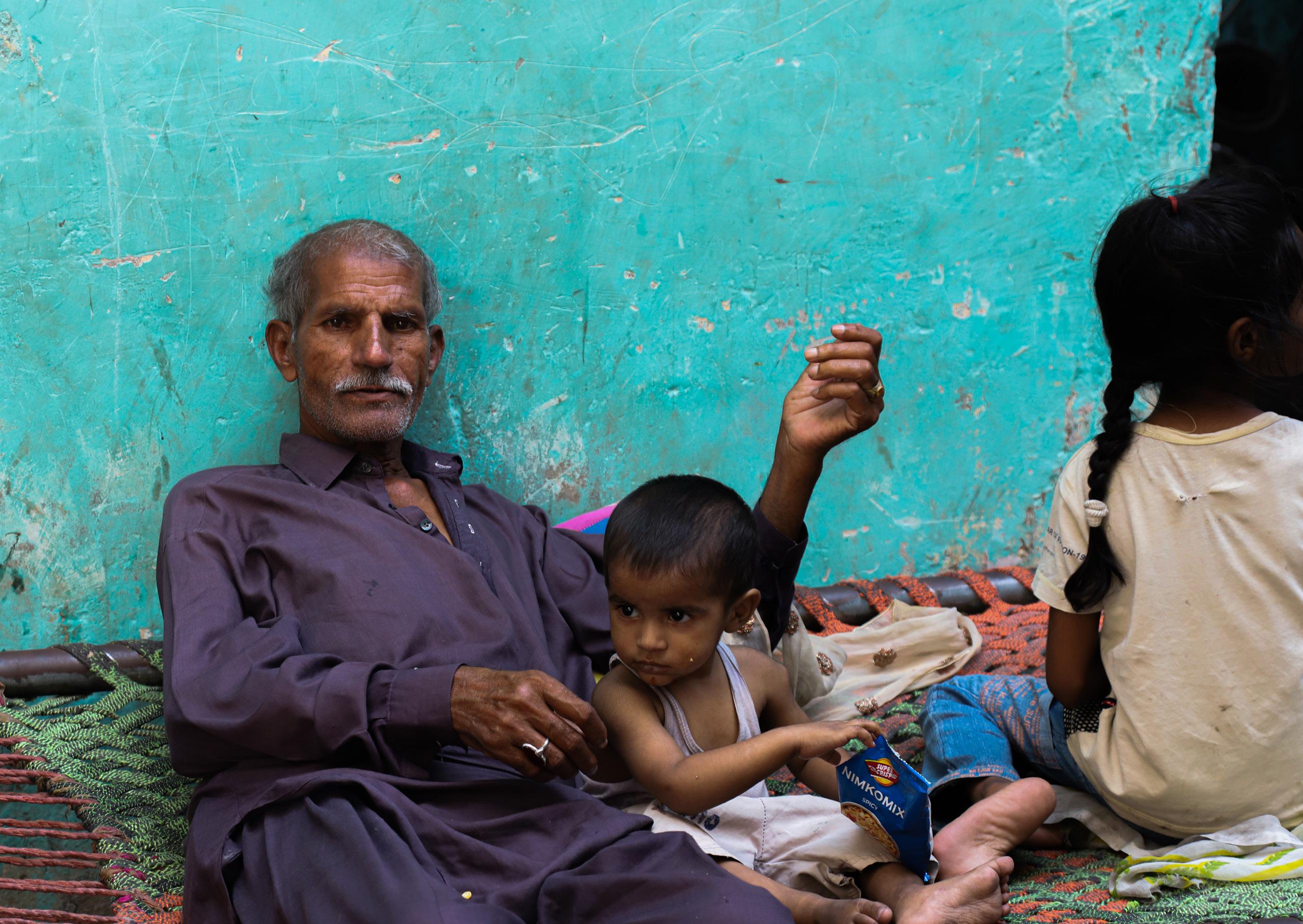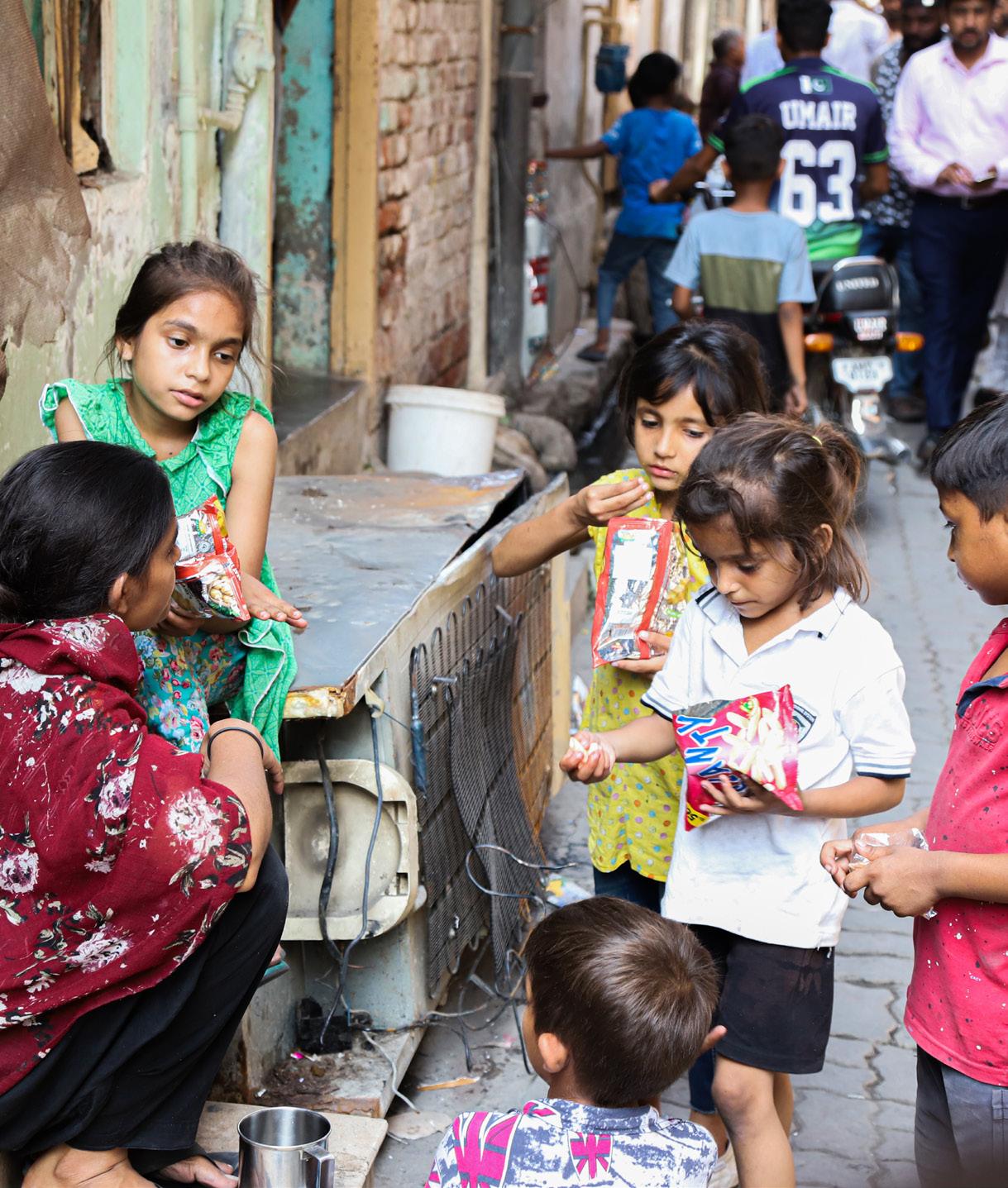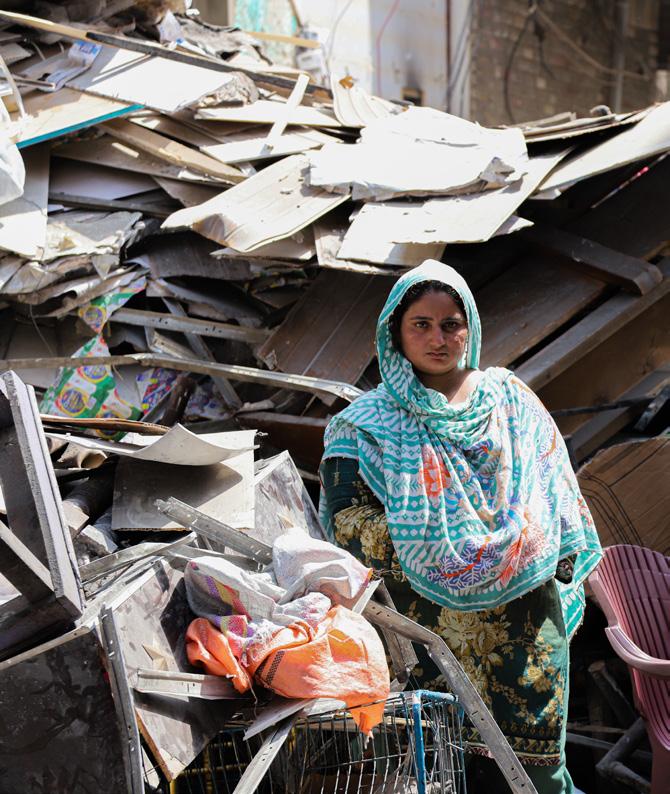
7 minute read
The plight of the persecuted
Pip Florit reports on those around the globe who are persecuted for their Christian faith.
In 2023, Open Doors reported that 360 million Christians worldwide face persecution and discrimination because of their faith. Last year, around 5,600 Christians were killed for their faith, while over 2,000 churches and Christian buildings were attacked.
These are the more extreme manifestations of persecution, but Christians in persecuted minorities around the world face many struggles, ranging from worship restrictions, to discrimination, harassment, imprisonment, torture and martyrdom.
Most published reports indicate that persecution against Christians is getting worse, as year on year, numbers of attacks on people and buildings increase.
There is a temptation to compartmentalise, thinking of ‘the persecuted church’ as something separate from us, but we are…one body, part of which is persecuted.
In many countries, it is dangerous to publicly live out and share a Christian faith. Some of the most dangerous places to do this include North Korea, Somalia and India, while threats have been growing in countries such as Indonesia, Nigeria and Myanmar. Many of PCI’s international partners are having to be increasingly cautious about how they carry out and communicate their work.
PCI has partners in India, Pakistan, Indonesia, Myanmar and Syria – all countries that feature in Open Doors’ World Watch List, which ranks the 50 countries with the highest rates of persecution of Christians. They face varying degrees of persecution, but all have to exercise a level of caution in their ministry. They know the meaning of resilience, how to depend on God and rely on prayer, when it is often the only tool they have.

While we in Ireland enjoy peace and freedom to live out our faith, our brothers and sisters are living a different reality, and it is one that we cannot forget. There is a temptation to compartmentalise, thinking of ‘the persecuted church’ as something separate from us, but we are one global church, one body, part of which is persecuted.
Jesus promised that persecution should be expected. He was mocked, beaten and crucified. In John 15:20, he says, “A servant is not greater than his master. If they persecuted me, they will persecute you also.” Throughout the New Testament, we find examples of people persecuted for their faith; from Stephen, falsely accused and stoned, to Paul and Silas, flogged and thrown in prison for driving out a demon in Jesus’ name.
From biblical times until now, persecution has continued as Christians through the centuries have suffered for sharing the hope they have been given. Early Christians came under threat from the Roman Empire when they refused to worship the emperor. They were seen as a threat, an unknown quantity to be suspicious of. They were also threatened by many Jews, who did not think that Jesus was the promised Messiah. Christians suffered painful and humiliating executions at the hands of the Roman Empire, but for many, martyrdom became something to be prized, and was seen as the most honourable kind of death, reflecting passages such as Matthew 5:10–12: “Blessed are those who are persecuted because of righteousness, for theirs is the kingdom of heaven. Blessed are you when people insult you, persecute you and falsely say all kinds of evil against you because of me. Rejoice and be glad, because great is your reward in heaven, for in the same way they persecuted the prophets who were before you.”
In 2023, Open Doors reported that 360 million Christians worldwide face persecution and discrimination because of their faith.
While the Roman Empire sought to eradicate Christianity, persecution only fuelled the fires of early believers, with the church growing rapidly in the face of trials. As in Acts chapter 8: “On that day a great persecution broke out against the church in Jerusalem, and all except the apostles were scattered throughout Judea and Samaria… Those who had been scattered preached the Word wherever they went.” When Paul and Silas were thrown in prison, it resulted in the conversion of the jailer and his family. When Philip fled from persecution in Jerusalem, he encountered the Ethiopian eunuch, taking the chance to explain Scripture to him. God used trials to bring his hope to more of the world.

In these days, Christians are persecuted for many reasons, but it is often that, as in early Rome, they are assumed to be a threat to governments and other power structures, particularly in Islamic states and dictatorships. In countries like Somalia and Yemen, citizens are expected to be Muslim and leaving Islam is seen as a betrayal of family, community and state. Christian converts are forced underground and if their faith is discovered, they face discrimination, violence, imprisonment or even death. Some flee from their home country, seeking safety elsewhere, including Ireland.
Although this may seem a world apart from where we are, it is not something we can ignore. We have much to learn from persecuted minorities, who are living out their faith as they seek to be good neighbours in their societies, to engage in dialogue as they work towards better understanding, while still maintaining an uncompromising witness to Jesus Christ. We need to ask about our part in these difficulties. Hebrews 13:3 says, “Continue to remember those in prison as if you were together with them in prison, and those who are mistreated as if you yourselves were suffering.” We are called to remember, to pray, to advocate and support where we can.
PCI’s Global Development committee has recognised the importance of this global issue and is seeking to appoint a persecuted minorities agent. This person will keep up to date with the latest news from countries where Christians are most persecuted, particularly those where PCI has partners, and advise on how our Church and congregations can best respond. PCI also encourages congregations to support the work of agencies working with persecuted minorities, particularly those mentioned at the end of this article.
They know the meaning of resilience, how to depend on God and rely on prayer, when it is often the only tool they have.
The statistics from around the world indicate that persecution of Christian minorities is increasing. It’s hard to see the hope in the midst of the statistics, but it is there. Romans 5:3–5 says, “Not only so, but we also glory in our sufferings, because we know that suffering produces perseverance; perseverance, character; and character, hope. And hope does not put us to shame, because God’s love has been poured out into our hearts through the Holy Spirit, who has been given to us.”
In the underground churches, God’s love is poured out. On the prisoners unjustly imprisoned, God’s love is poured out. On the family fleeing from the only country they’ve ever known, God’s love is poured out. On the new convert who has found Jesus but lost their family, God’s love is poured out.
Let’s pray for that as we remember persecuted Christians around the world.
Pip Florit is PCI’s Mission Support Officer for Partnerships.
Open Doors works in more than 70 countries, supplying Bibles, providing emergency relief and helping persecuted believers stand strong. It encourages the church in the UK and Ireland to pray, give and speak out. www.opendoorsuk.org
Christian Solidarity Worldwide has a vision of a world free from religious persecution, where everyone can practise a religion or belief of their choice. www.csw.org.uk
Church in Chains is based in the Republic of Ireland and encourages prayer and action in support of persecuted Christians worldwide. www.churchinchains.ie
Release International is UK-based and supports believers around the world who are persecuted for Christ and the gospel. www.releaseinternational.org


